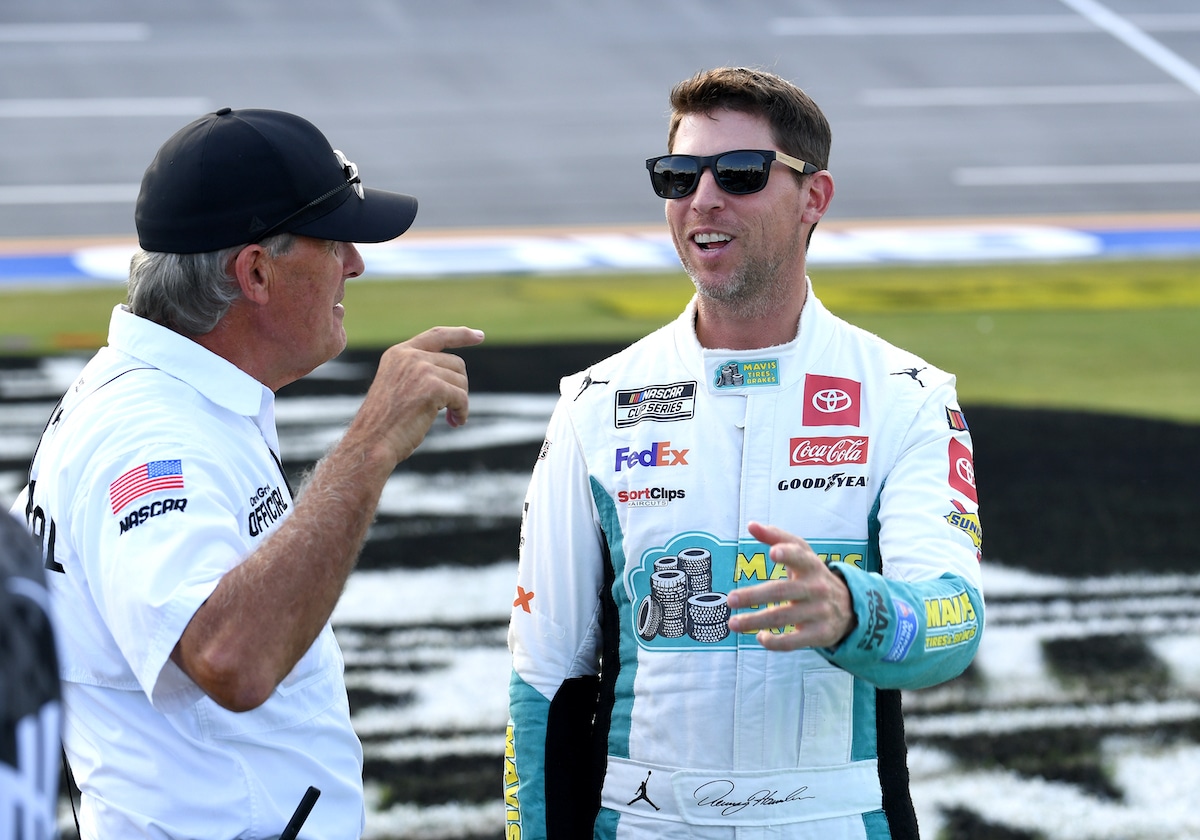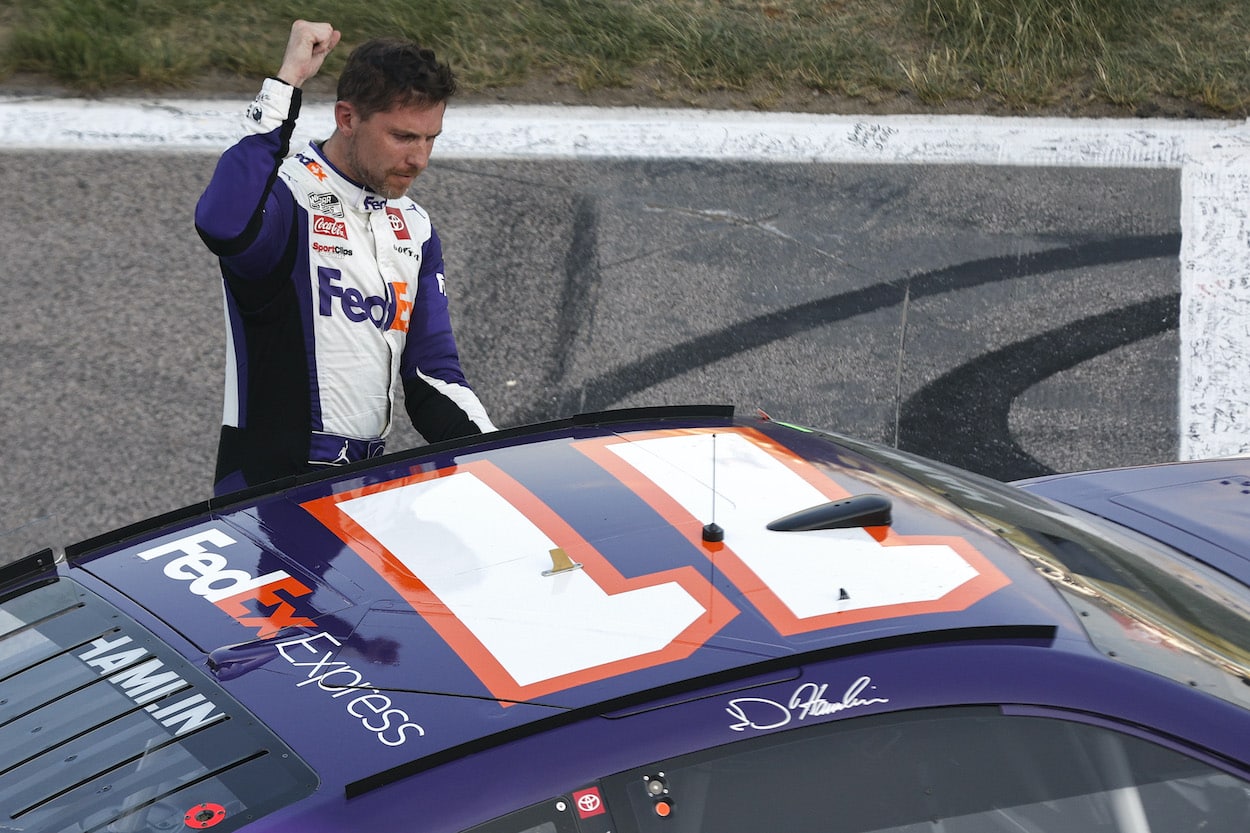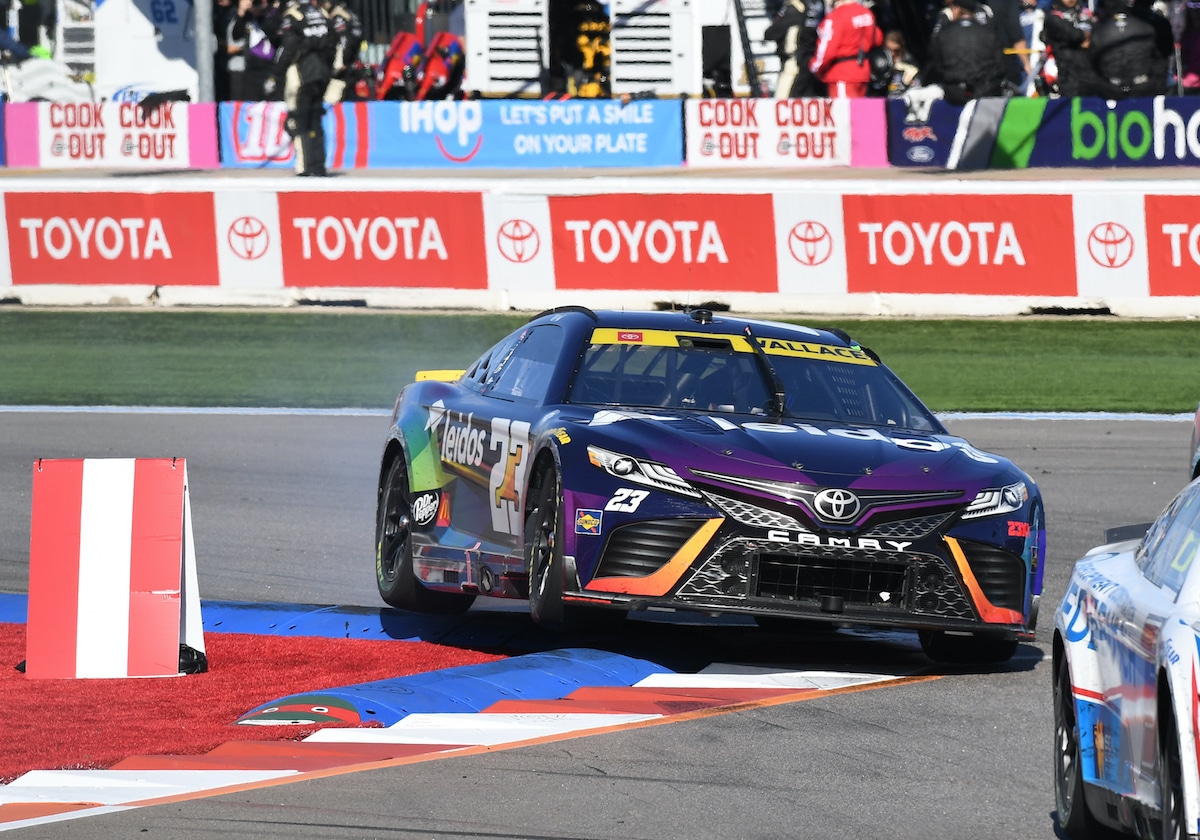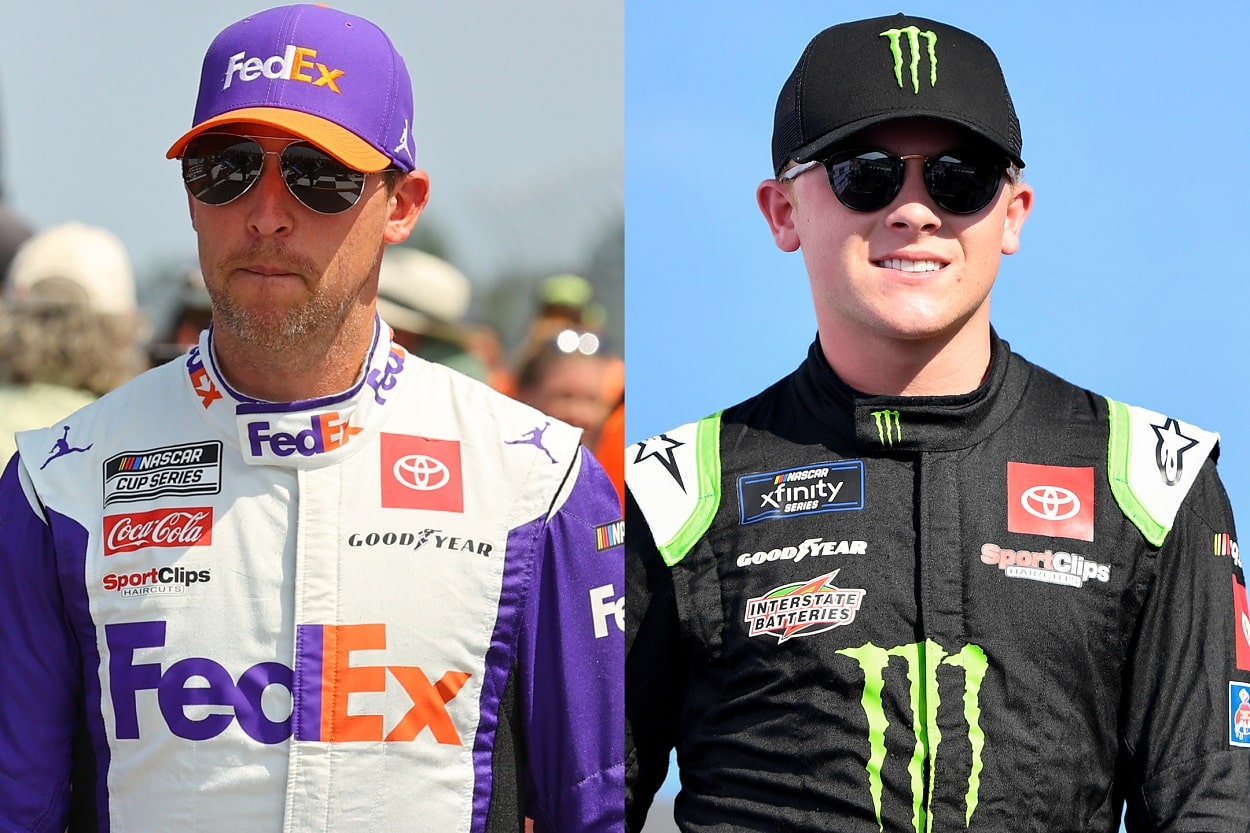
Which Past (or Future) NASCAR Rookie of the Year Is Most Likely to Win His First Cup Series Title?
The 2023 NASCAR Cup Series Rookie of the Year battle could be one of the more memorable in recent memory and eventually earn a unique spot in the history of the sport if the driver who prevails goes on to someday become a Cup Series champion.
2022 Xfinity Series champion Ty Gibbs and runner-up Noah Gragson are set to headline the struggle for top rookie in the Cup Series this upcoming season, assuming NASCAR officially classifies them as rookies. Gibbs will drive the No. 54 for his grandfather’s Joe Gibbs Racing, while Gragson will pilot the No. 42 car for Petty GMS Racing.
While it’s unlikely either driver will burst onto the scene and win the championship in their first full-time season, they both have the potential to join a rather exclusive group within the sport.
Less than 20 percent of NASCAR Rookie of the Year winners have later won a Cup Series championship
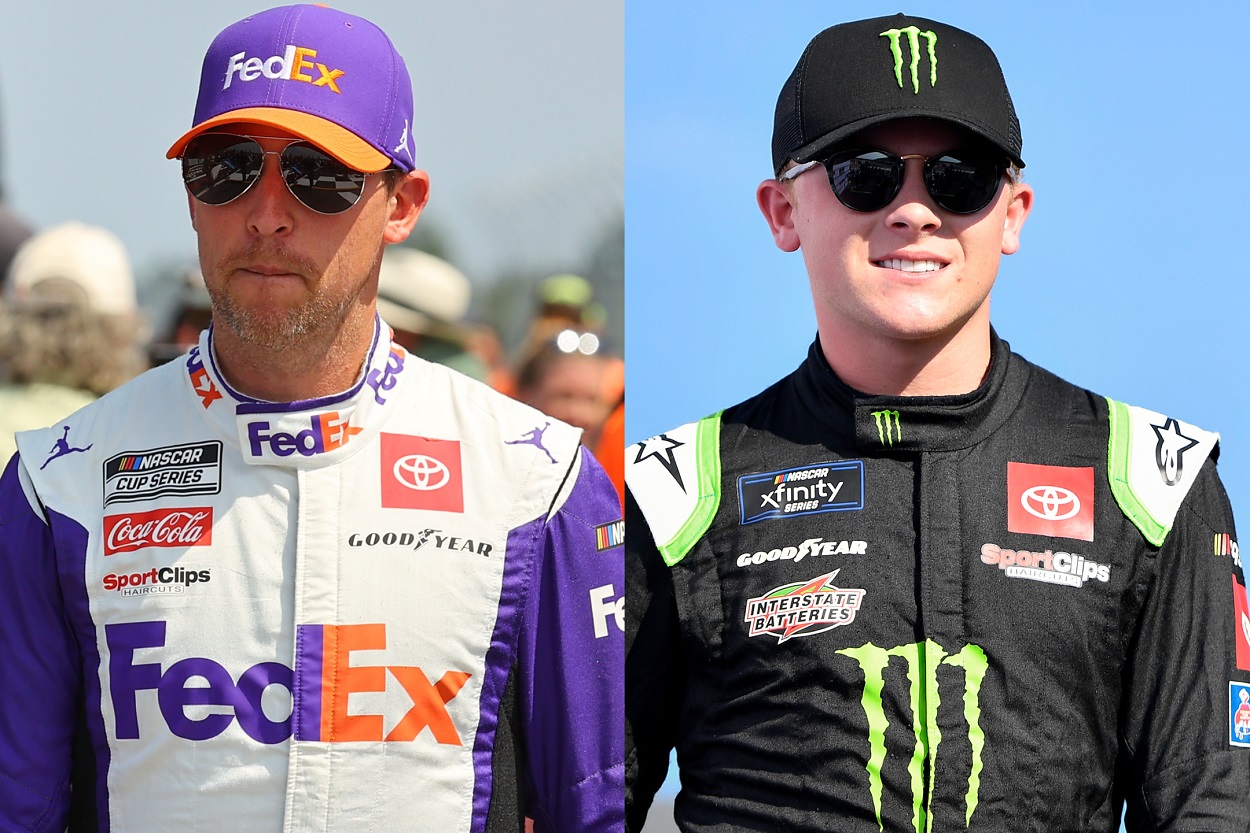
Only 13 Cup Series Rookie of the Year award winners have gone on to win a championship in the series at some point in their careers across the 66 years NASCAR has handed out the honor.
Kyle Larson was the latest to add his name to the fraternity when he won the 2021 title after winning the 2014 Rookie of the Year award over Austin Dillon. Larson’s current Hendrick Motorsports teammate, Chase Elliott, is the most recent rookie to accomplish the feat, as he went from 2016 Rookie of the Year to 2020 Cup Series champion in the span of five seasons.
No Rookie of the Year winner has gotten particularly close since, however. The 2018 top rookie, William Byron, and 2021 winner Chase Briscoe both reached the Round of 8 last season but ultimately finished sixth and ninth, respectively, in the final standings.
They are perhaps the two drivers with the best chance to break into the rookie/champion class, along with Denny Hamlin, who won the 2006 Rookie of the Year over Clint Bowyer and Martin Truex Jr. but is still gunning for his first championship.
Otherwise, it has been a somewhat dramatic hit or miss for recent Rookie of the Year recipients.
Erik Jones is still in the Cup Series after winning the 2017 Rookie of the Year in his only season as the driver of the No. 77 car for Furniture Row Motorsports. Still, he lost his ride in the No. 20 car at Joe Gibbs Racing after the next three seasons and now drives the No. 43 car for Petty GMS Racing.
Jones has still fared better than 2019 top rookie Daniel Hemric and 2020 winner Cole Custer, who managed to eclipse 2022 playoff drivers Tyler Reddick and Christopher Bell because of a win at Kentucky Speedway. Both Hemric and Custer already no longer have full-time Cup Series rides and are set to spend the 2023 campaign in the Xfinity Series.
NASCAR now determines its top rookie differently than it had before 2018, but the Rookie of the Year award is still far from an accurate gauge of how much success the winner will achieve in their career, as Custer’s 2020 triumph suggests.
The sanctioning body used to have a separate points structure for rookie drivers, only using the top 17 races for each participant to decide the winner.
That led to situations such as 2002 when Ryan Newman won the award even though eventual seven-time champion Jimmie Johnson finished one spot higher than Newman’s sixth place in the regular points standings, and Johnson scored three victories to Newman’s one.
Gibbs might be the next to achieve both Cup Series Rookie of the Year and championship
It is possible Gibbs, considering his 11 wins in a year and a half in the Xfinity Series and opportunity with a top-tier organization, could find himself on both the Rookie of the Year and series champion lists before any other active former Rookie of the Year winner.
Ricky Stenhouse Jr. has made the playoffs just once since his 2014 Rookie of the Year season, and Austin Cindric likely will need at least a few years to develop after his Daytona 500 win put him in the 2022 playoffs and essentially clinched his Rookie of the Year title.
Every other active former top rookie has either already won a title (Elliott, Larson, Joey Logano, Kyle Busch, Kevin Harvick) or is out of the series.
The question then becomes whether Gibbs or Gragson can win a championship before Briscoe, Byron, Jones, Stenhouse, or Hamlin.
Hamlin might seem an obvious choice given his four straight top-five points finishes, but he is now 42 years old and has had 17 full-time seasons to try and win his championship. Byron will likely be a factor for as long as he is in an HMS car, and Jones and Briscoe both at least have playoff appearances on their resumes.
The 2023 Rookie of the Year battle should be a fascinating storyline on its own. But it might also become more meaningful in a larger sense, depending on how the winner’s career unfolds.
